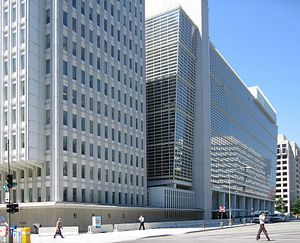Monday, the World Bank Board of Executive Directors approved $12 million in additional financing for a project in Tajikistan focused on sustainable agriculture and water resource management. The additional funds — which come from the International Development Association (IDA) that provides loans to the world’s poorest countries — are targeted to create temporary employment in rural districts specifically to stem the impact of falling remittances.
In May, the World Bank warned in its biannual economic update on Tajikistan that “in the first two months of 2015 remittances were about 40 percent lower in U.S. dollar value than in the same period of 2014.”
Patricia Veevers-Carter, the country manager for Tajikistan said in a press release announcing the additional financing that “increasing opportunities for people to earn income through our existing project is an immediate measure to protect the poorest households from the impacts of the economic slowdown and decreasing remittances.”
She went on to say that the World Bank continues to work with the Tajik government “on medium and long term priority measures to improve the performance of the economy through structural reforms and to create sustainable jobs by promoting better conditions for private sector growth.”
The additional financing will enable the World Bank to expand the public works component of a project that has been in progress since 2013 (the Second Public Employment for Sustainable Agriculture and Water Resources Management Project, more succinctly called PAMP-2), creating an additional 10,000 temporary employment opportunities. The project, according to the World Bank, has created 11,000 temporary employment opportunities clearing 3,350 kilometers of irrigation canals to date and will ultimately benefit 770,000 people across twelve districts. Better irrigation leads to higher crop yields, which lead to more sustainable employment in agriculture and greater food security in the region.
As with most World Bank projects there are several components involved in PAMP-2, which itself is a follow-on project scaling up a previous endeavor targeting food security in Tajikistan. The temporary employment clearing irrigation and drainage canals is a short-term fix and it is hoped that the project’s other aspects — supporting the development of policies and institutions involved in water management — will contribute to longer term economic improvements.
The World Bank has an active portfolio in Tajikistan that currently encompasses 21 projects and a net commitment of $323.4 million. Since 1996 the World Bank has provided Tajikistan over $1 billion in grants, IDA loans, and trust fund resources. Still, the country remains one of the region’s poorest with a GDP of $8.5 billion.
Almost half of its GDP comes from remittances and most Tajiks working abroad are in Russia, which has experienced what is likely to become a protracted recession due to last year’s drop in oil prices and sanctions. Neighboring Kyrgyzstan, similarly reliant on remittances from migrant workers in Russia, joined the Russian-led Eurasian Economic Union and holds out hope that this will improve the lot of its citizens working in Russia. Tajikistan at one point expressed interest in joining the EEU but has not made any tangible moves to do so.
David Trilling, writing recently for Eurasianet, notes that the World Bank and the Asian Development Bank will soon make a decision on a Tajik request for $40 million in additional budget support — since 2009 the two development banks have spent over $140 million, Trilling says, topping off Tajikistan’s budget. “They may wish to consider how past donations have benefited people close to the autocratic president while doing little to solve the long-term problems they were aiming to fix,” Trilling writes.
Development agencies may stress reform but President Emomali Rahmon has long resisted change and transparency. Still, the money comes in. The Economist quoted a senior manager at an unidentified foreign lending institution as saying, “Our performance is measured by how much money we move out the door,” and that this sends the wrong signal to the government of Tajikistan.

































